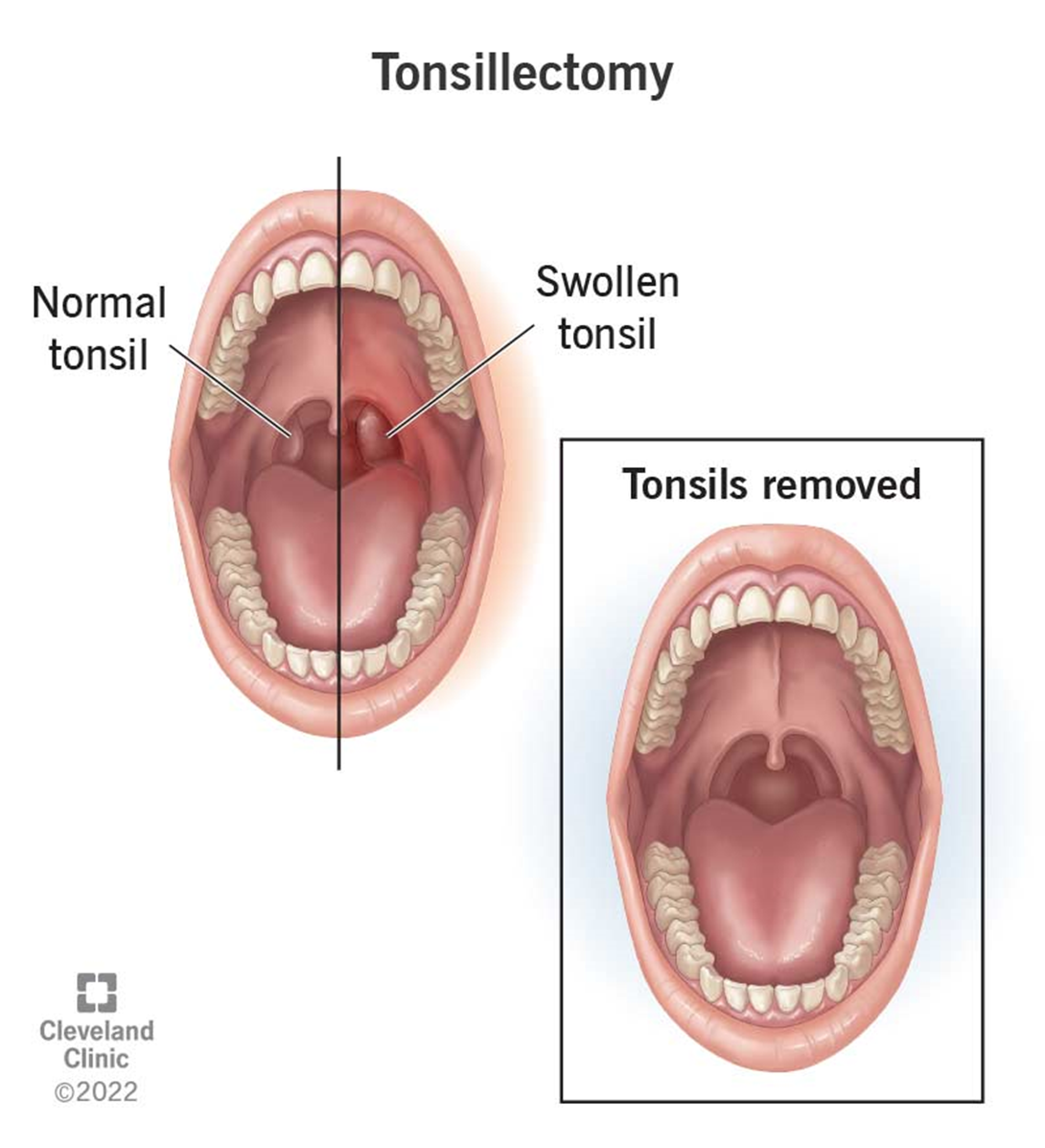A nurse is assessing a child who is postoperative following a tonsillectomy. Which of the following findings is a manifestation of hemorrhage?
Drooling
Poor fluid intake
Increased pain
Frequent swallowing
The Correct Answer is D
Choice A reason: Drooling is not a sign of hemorrhage, but rather a sign of difficulty swallowing or breathing. Drooling may occur after a tonsillectomy due to throat pain or swelling, but it does not indicate bleeding.
Choice B reason: Poor fluid intake is not a sign of hemorrhage, but rather a sign of dehydration or nausea. Poor fluid intake may occur after a tonsillectomy due to throat pain or fear of swallowing, but it does not indicate bleeding.
Choice C reason: Increased pain is not a sign of hemorrhage, but rather a sign of inflammation or infection. Increased pain may occur after a tonsillectomy due to tissue damage or healing, but it does not indicate bleeding.
Choice D reason: Frequent swallowing is a sign of hemorrhage, as it indicates that the child is trying to clear blood from the throat. Frequent swallowing may occur after a tonsillectomy due to bleeding from the surgical site or a ruptured blood vessel.

Nursing Test Bank
Naxlex Comprehensive Predictor Exams
Related Questions
Correct Answer is C
Explanation
Choice A reason: This statement is normal, as an infant who is 2 months old should be alert and responsive to stimuli. The nurse should assess the infant's level of consciousness and responsiveness using the AVPU scale (alert, voice, pain, unresponsive).
Choice B reason: This statement is normal, as an infant who is 2 months old should have warm and dry skin and a tone that is appropriate for their ethnicity. The nurse should assess the infant's skin color, temperature, moisture, and turgor.
Choice C reason: This statement is abnormal, as an infant who is 2 months old should not have a distended abdomen or a visible mass in the right upper quadrant. This could indicate a serious condition such as a liver tumor, a bowel obstruction, or a hernia. The nurse should report this finding to the provider and monitor the infant for signs of pain, vomiting, or jaundice.
Choice D reason: This statement is normal, as an infant who is 2 months old should have full range of motion in their extremities and no clicks noted. The nurse should assess the infant's muscle strength, tone, and symmetry, and check for any signs of hip dysplasia, such as a positive Barlow or Ortolani test.
Correct Answer is D
Explanation
Choice A reason: Cranberry juice is not a good choice for a child who has had a tonsillectomy, as it is acidic and may cause pain and irritation to the throat. The nurse should avoid offering citrus juices or carbonated beverages to the child.
Choice B reason: Vanilla milkshake is also not a good choice for a child who has had a tonsillectomy, as it is thick and may coat the throat and interfere with healing. The nurse should avoid offering dairy products or foods that are sticky or hard to swallow to the child.
Choice C reason: Cubed ice is not a good choice for a child who has had a tonsillectomy, as it may be too cold and cause vasoconstriction and bleeding. The nurse should avoid offering very cold or very hot fluids to the child.
Choice D reason: Water is the best choice for a child who has had a tonsillectomy, as it is clear, bland, and hydrating. The nurse should encourage the child to drink plenty of water to prevent dehydration and promote healing.
Whether you are a student looking to ace your exams or a practicing nurse seeking to enhance your expertise , our nursing education contents will empower you with the confidence and competence to make a difference in the lives of patients and become a respected leader in the healthcare field.
Visit Naxlex, invest in your future and unlock endless possibilities with our unparalleled nursing education contents today
Report Wrong Answer on the Current Question
Do you disagree with the answer? If yes, what is your expected answer? Explain.
Kindly be descriptive with the issue you are facing.
